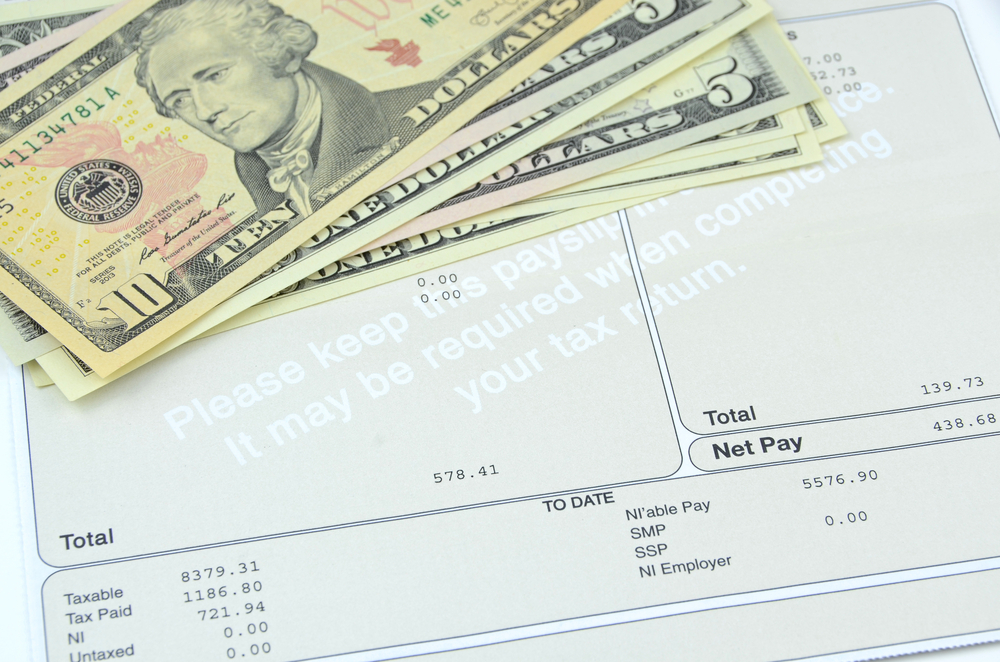If you’re working the typical 40 hours a week, you’ll clock a total of 160 hours of work each month.
In this case, you can easily calculate your monthly salary by multiplying the hourly wage of $17.50 by 160 hours.
Your hourly pay of $17.50 would end up being equivalent to an average monthly income of $2,800.
Table of Contents
How does this compare to other salaries?
According to CEIC Data, the average monthly income is $4,365 (as of January 2022), which translates to $52,380 per year.
This means that if you’re making $2,800 per month, equivalent to $33,600 per year, you’ll be making a below-average income.
However, $2,800 is still significantly greater than the earnings of many minimum wage workers.
Even if a minimum wage employee earned $15 per hour and worked 40 hours a week (which is currently the highest standard rate in the US), they’d only be making $2,400 per month.
This means they’ll be earning $400 less than people making an hourly wage of $17.50.
How much do I make each day with $17.50 an hour?

With an 8-hour workday, you’ll be making $140 per day. This number is calculated by multiplying your hourly wage of $17.50 by 8 hours.
If you’re working 10 hours a day, your earnings would be equal to $175 per day ($17.50 multiplied by 10).
With 12 hours a day, you’d be making $210 ($17.50 multiplied by 12).
What about each week?
Let’s say you’re working 40 hours a week. If that’s the case, you’ll be making $700 a week. You get this number by multiplying $17.50 by 40.
Those working 50 hours a week would be making $750 weekly ($17.50 multiplied by 50). People working 60-hour weeks would be earning a weekly salary of $1,050.
How about per year?
An hourly wage of $17.50, coupled with 40-hour workweeks throughout the year, would give you an annual salary of $33,600.
According to Quinns Commentary, those in the 25th percentile earned $33,003 in 2021, while those in the 75th percentile made $122,500.
This places those who earn an hourly wage of $17.50 at around the 25th percentile. In many states, this would place them in the lower-middle class.
How many working days are there per year?

To calculate the number of working days in 2022, you can count every single working day throughout the year, which starts on Saturday, January 1, 2022, and ends on December 31, 2022.
There is a total of 365 days in 2022, including weekdays and weekends. You’ll see that there are 260 weekdays (Monday to Friday), and, if you count every Saturday and Sunday of the year, you’ll find that there’s a total of 105 weekend days.
What this means is that if you’re working 8-hour days on every weekday of the year and don’t work overtime during the weekends, you’ll have worked a grand total of 2,080 hours throughout the entire year.
This would translate to a salary of $36,400 for 2022, which is notably higher than the estimate we provided above ($33,600 per year).
This, of course, isn’t taking into account any holidays or vacations that you may choose to take.
Is $17.50 a good hourly wage?
That depends on where you live. If you live, for example, in a rural community in Tennessee, that might be considered decent pay.
But if you live in Los Angeles, California, you might find it extremely difficult to make ends meet unless you rent a low-income apartment and/or live with a roommate.
While the average monthly rent in Los Angeles, California, is $2,563, the average monthly rent in, say, Gatlinburg, Tennessee (which has a population of around 4,000 residents), is $1,050.
Considering that your monthly income should be roughly equivalent to your monthly rent multiplied by three, an hourly wage of $17.50 most likely won’t allow you to live comfortably in Los Angeles, unless, again, you live with a roommate or opt for low-income housing.

Even in the small town of Gatlinburg, you might find it somewhat difficult to make ends meet with a $17.50 hourly wage
After all, the average monthly rent in this town ($1,050) multiplied by three gives you $3,150, which is still higher than $2,800, the monthly income you’d be earning with $17.50 per hour and 40 hours of work per week.
Can I live abroad while working for a US company and making $17.50 an hour?
Yes, it’s absolutely possible. But if you want to work for a US company while living abroad, you’ll have to make sure you comply with the country’s visa requirements.
And if you’re an American citizen, you’ll have to pay US taxes, just like Americans living in the US.
As long as you maintain good standing with your company, you should be able to work remotely while living abroad.
Living abroad while earning a US-based income can actually be extremely beneficial, especially if the country you’re living in has a much lower cost of living.
The Philippines, for example, enjoys a much lower cost of living than countries like the US, the UK, and Australia (about 50% to 60% lower).
The average rent in the city center of Manila, the country’s capital, is about $521 per month, making the city extraordinarily affordable for people making $17.50 an hour.

If, on the other hand, you’re living in a foreign country like the UK or Australia, where the cost of living is comparable to that in the US, you’ll probably struggle to live off your income.
With a $17.50 hourly wage, you’ll have to make some serious adjustments in order to live comfortably.
How much is $17.50 a year after taxes?
If you’re earning $17.50 an hour and working 40 hours a week throughout 2022, you’ll have made $36,400 by the end of the year.
But that’s your gross income. To calculate your net annual income (which is your after-tax income), you’ll have to take into account your 6.2% social security tax and 1.45% Medicare tax.
There’s also approximately 12% in local, state, and federal taxes.
When you take all these factors into consideration, you’ll find yourself with a net annual income of $29,247.40.
Of course, this number might change depending on your state and jurisdiction, but the total should be roughly the same.
How can I increase my pay rate above $17.50 an hour?

As you may well know, asking for a pay increase can be a highly sensitive discussion, and you’ll need to do some proper planning and research beforehand.
You’ll also need to convince your employer that you deserve the pay increase, and you’ll need to make sure the timing of the request is right.
The first step is to examine your tenure – in order words, how long you’ve been at the company.
If you’ve been working there for less than six months, you’d be better off waiting.
After six months, you can start thinking about starting a salary negotiation.
If you’re in a larger company, you might have to find out when it conducts its salary reviews. For smaller companies, you’ll probably just have to figure out the best time to ask.

Factors that will likely increase your chances of raising your salary include improving your skills and qualifications, maintaining a solid performance, taking on more responsibilities, achieving an outstanding performance review, seeking regular feedback, understanding your role well, and being generally likable at work.

















